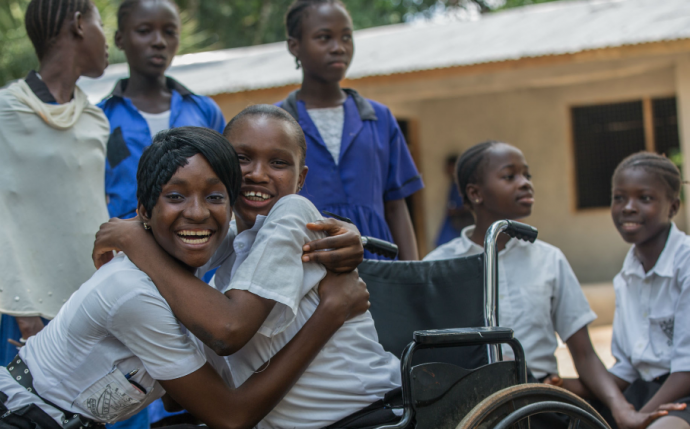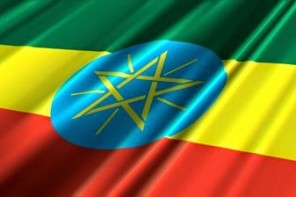Living without access to technology of any sort can be very challenging, because technology has become a central part of our modern-day society. It does not only connect but also controls every sector within our communities. This has triggered the civil society to pressurize Tech players to reassess their products and services in regard to physically challenged consumers, who find it very difficult to utilize existing technologies due to their impairments. Keyword: inclusive technology.
The British Educational Communications and Technology Agency (BECTA), defines inclusive (assistive) technology as “the software and technology which helps people with disabilities and special needs to overcome the additional challenges they face in education and learning.” In general terms inclusive technology encompasses a broad area of need that indiscriminately provides opportunities for all Tech users. People with special needs are constantly challenged by barriers to full social and economic inclusion which includes the unavailability of assistive devices and technologies, likewise non-adapted means of communication. According to The World Bank one billion people or 15% of the world’s population, live with some sort of disability, with higher tendencies in developing countries. Between 110 million and 190 million people, experience significant disabilities. According to the 2011 World Report on Disability 6.4% of the children under the age of 14 living in Africa have moderate to severe disabilities. These statistics and more highlight a dire need to make necessary technological adjustments best suited to the needs of such consumers in every sector.
Read more about Nairobi’s Smart Tech Leadership Academy
What is being done to address the problem?
In the US for instance, LC Technologies invented a device that enables people to control a computer using just their eyes. Stephen Hicks, a neuroscientist at Oxford University, developed “smart glasses” that accentuate the contrast between light and dark objects. Africa Code Week is an organisation that seeks to drive sustainable learning impact across Africa by instilling digital literacy and coding skills in the young generation: “It takes an empowered village to raise a child in the digital age.” In collaboration with key players within the industry e.g. Google and the UNESCO initiative YouthMobile, Africa Code Week is building community capacity by also tackling the issue of inclusion regarding impairments.
On November 8th, 2018 the organization focused on coding workshops for children with hearing impairments in Mozambique. “Coding is a language that everyone can – and should – speak in order to be active participants in the global digital economy. With the support of our public and private sector partners, Africa Code Week is delivering on its vision of a 21st century inclusive education by reaching Mozambique’s hearing-impaired community for the first time,” states Sonia Santos, local coordinator for Africa Code Week. According to Santos, Mozambique has an estimated 305 000 deaf people, with only three schools dedicated to teaching deaf children. This leaves most of the community without exposure to digital skill-development opportunities. “As the Fourth Industrial Revolution gathers pace […] it is our goal to empower Africa’s youth with the skills they need to thrive in the global digital economy in an inclusive and sustainable manner,” Santos points out. During the two-day workshop 24 teachers and 105 hearing-impaired students were trained.
Find out where Africa stands in terms of mobile telecommunication
Inclusion in Africa goes beyond mere education as highlighted during the Third African Tech Summit in London earlier this year. Inclusive technology should therefore be understood as building a technology ecosystem across Africa, that is truly reflective of Africa’s diversity and more receptive to its needs, if the continent is to assert itself as a viable attraction for foreign investments and trade. “Technology should be introduced in collaboration with those who use it, indeed they should be in the driving seat as technology only really succeeds when it empowers people (everyone) to fulfill their potential,” emphasizes Chi Onwurah, UK member of Parliament. The WHO suggests this can be achieved through synchronized market regulation and anti-discrimination measures while considering consumer protection and public procurement. Legal challenges under disability discrimination laws across the globe have led to improvements in the telecommunications service in several countries e.g. the Danish Act on Radio and Television Broadcasting (2000) that creates an obligation for public service television channels to promote access for disabled people, by subtitling. However, much is still to be done to achieve holistic inclusion especially in Africa.
The UK based organisation Disability Charity Scope predicts, if a million more-disabled people could work, the UK economy alone would grow 1.7% or £45billion ($64billion). Renowned scientist Professor Stephen Hawking, who lived with severe impairments showed how much people with special needs can contribute to our society if given a chance to dance at the Tech party. Inclusive technology is a necessity that does not only create a feeling of belonging, but also creates a sense of self-worth.





